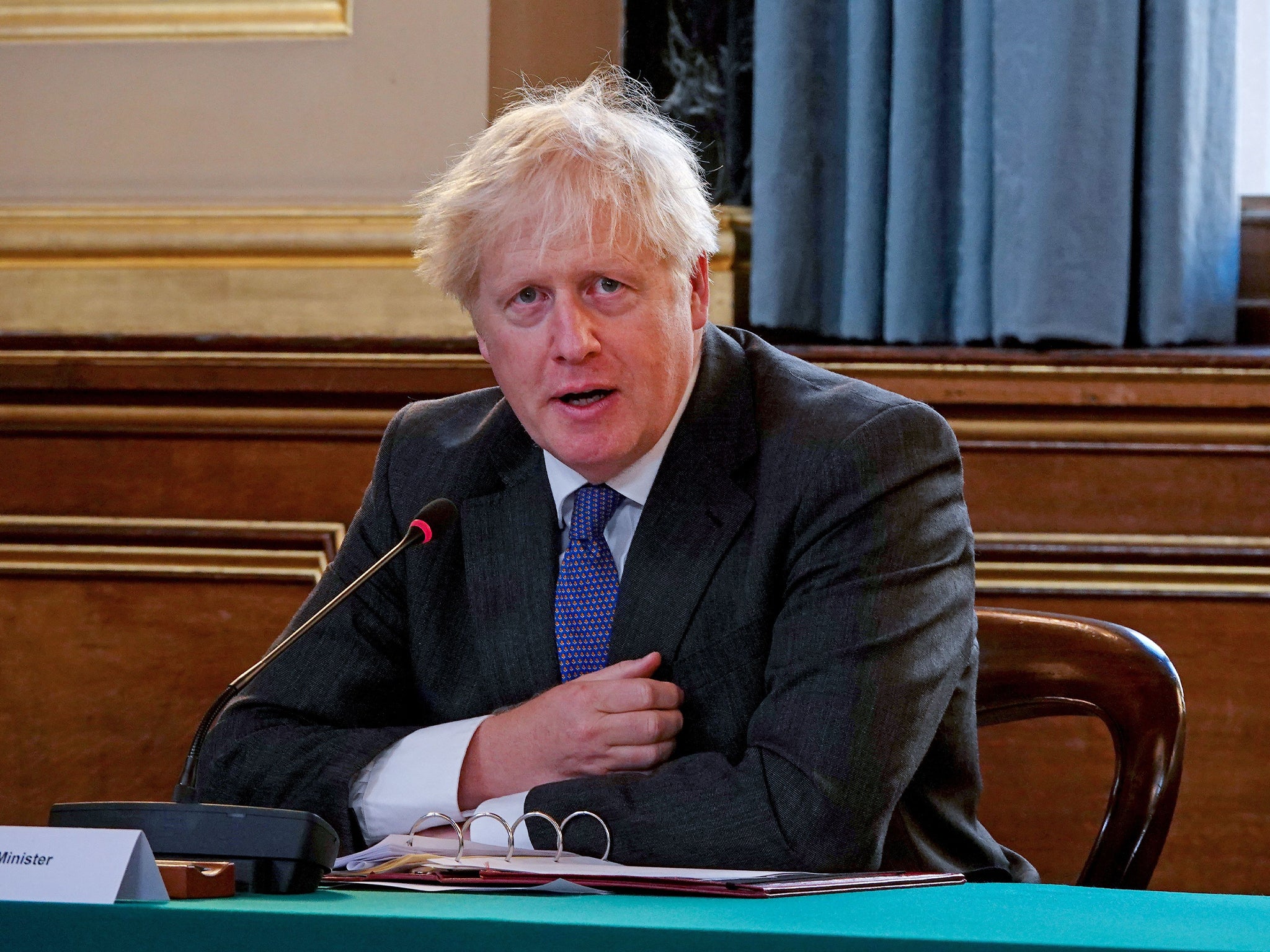Boris Johnson has never had a foreign policy before – now is his chance
An address to the Commons on Afghanistan gives the prime minister a chance to set out where he stands now on the crisis, writes John Rentoul


One of the few times Boris Johnson mentioned Afghanistan in his Daily Telegraph column was the notorious article in 2002 that mentioned “piccaninnies” and “watermelon smiles”. It was a sarcastic welcome back for Tony Blair, who had returned from a trip to India via a stopover in Kabul, where the Taliban had been toppled just a month earlier.
“For a full 120 minutes, he and Cherie shone the light of their countenances upon the people of Afghanistan, and, who knows, perhaps the place is now rife with feminism, habeas corpus and multi-party democracy,” Johnson wrote. If it was unfunny at the time, it reads tragically now.
Johnson had been an MP for seven months, with no discernible views on foreign policy beyond a Conservative entertainer’s desire to make fun of a Labour prime minister’s piety about re-ordering the world to promote human rights.
A year later he voted for military action in Iraq, as almost all Tories did, and even complained that the US and its allies should have invaded sooner rather than wasting all that time at the UN. Some years later, when the Iraq war turned out to be unpopular, he tried various ways of disowning his decision. He claimed in 2014 that even as he voted for war he “started to think” that the case for it “probably was a load of nonsense”. He said of someone who thought Blair should be imprisoned for what he did in Iraq that “his heart is in the right place”.
Two years later he became foreign secretary, a post on which he left no mark deeper than misspeaking in such a way as to hand a propaganda gift to the theocrats of Iran. Even now, after he has been prime minister for two years, there is empty space where a foreign policy ought to be. What did he really think about Afghanistan, one of the few military legacies he inherited from “Supertone … orbiting in his taxpayer-funded jet, descending to bring his particular brand of humbug to the trouble spots of the world”, whom he so roundly mocked 19 years ago?
We still do not know. One Westminster Borisologist said to me: “He’s like one of those ‘ladies who lunch’: he has a couple of ready-made opinions about anything in current affairs but no deep interests or beliefs.”
A month ago he was committed to the rights of women and girls in Afghanistan – a place “now rife with feminism” – and said he would remain so after the last 750 of our troops had pulled out along with the 3,500 Americans. Last week it was all “very difficult”. On Friday he said: “We have got to be realistic about the power of the UK or any power to impose a military solution – a combat solution – in Afghanistan.” All he could offer was to “work with all our partners in the region around the world who share an interest with us in preventing Afghanistan once again becoming a breeding ground for terror”.
But what does he think about it? Does he agree with Ben Wallace, his defence secretary, who was visibly upset by Britain’s part in what he saw as the betrayal of the Afghan people, and who blamed the unwillingness of other countries to stay the course? Or does he agree with Joe Biden, who in a defiant address yesterday said the operation had to end some time and blamed the chaos on Afghans who were unwilling to fight?
President Biden’s speech certainly sounded rather like a Telegraph opinion article, albeit with the jokes taken out, but Johnson has never been a Tory isolationist. Nor has he been, with Michael Gove, an enthusiastic supporter of Blairite liberal intervention. I would have guessed that, had Johnson still been a backbench Tory MP writing for the Telegraph he would be lined up with Tugendhat, Mercer and Ellwood, decrying the Americans for cutting and running. I suspect that he takes the conventional view that this scuttle weakens the US and Nato. He may even have urged the US administration in private not to do it. But he hasn’t been on the phone to President Biden, possibly because it was obvious that there was no chance of persuading him.
Understandably, there are limits to how much a British prime minister would want to criticise a US president in public, but it would be worth knowing, when Johnson addresses the Commons tomorrow morning, what he thinks about the lessons for military interventions in principle. Was western involvement in Afghanistan mistaken from the start? Could it have been sustained indefinitely by a minimal deployment? If not, could it have been ended better? The extent to which he answers these questions will be a test of whether the prime minister is capable, at last, of being serious.



Join our commenting forum
Join thought-provoking conversations, follow other Independent readers and see their replies
Comments